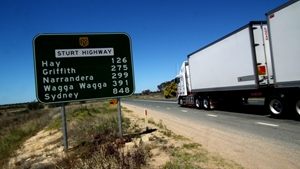 There is no doubt that the freight industry is one of the most important sectors for NSW.
There is no doubt that the freight industry is one of the most important sectors for NSW.
It is vital for truck operators and drivers to ensure their vehicles are safe and compliant and that the green slip and registration is up to date.
For all the benefits that this industry brings to NSW, there are also a number of road-related issues. It is important for the government and police to be vigilant to ensure the safety of all road users.
The latest example of this has recently wrapped up – Operation Shield. The collaboration between Joint Heavy Vehicle Taskforce Officers from the NSW Police Force Traffic & Highway Patrol Command and Maritime Services Inspectors saw heavy vehicles checked at 15 locations across the state during the first week of December.
In total, close to 10,000 trucks and trailers were inspected. From those inspections, 796 defect notices were issued as well as 129 infringements and 119 breaches for various offences including registration, weight, licence and load problems.
Additionally, authorities conducted more than 3,400 random breath tests for alcohol and 1,800 drug tests. However, no driver failed the breath test for alcohol.
The same can’t be said for the 22 drivers who were caught with drugs in their system. Their licences were immediately suspended for 24 hours pending further investigation and possible prosecution.
There was even one example of a driver tested negatively at one check station, then providing a positive sample at a different location later in the day.
Serious problems highlighted in Operation Shield
Operation Shield also illustrated the sinister side of the trucking industry. As demand for deadlines and productivity grows, operators and drivers continue to push the law to the limit.
Traffic and Highway Patrol Commander, Assistant Commissioner John Hartley, highlighted two examples of this.
Firstly, a number of trucks were tampered with to allow speeds over 100 km/h. A total of 33 trucks out of the 264 subject to an engine control module download were illegally modified.
“Not only do those drivers face a penalty of $2,252, but operators and companies face penalties, with one recently fined $10,000 for allowing such practices to occur,” he said.
“Where we have found evidence in the past of tampered chopper wheels, wizzers, or ‘black boxes’, this would appear to have graduated to software manipulation which we can detect with our current methods,” he explained.
“No matter what extent drivers or operators go to we will continue to run this issue down across the industry.”
“This should serve as a wake-up call to the industry. Those that engage in speed tampering in an effort to gain some sort of commercial advantage will most certainly be prosecuted by the Joint Traffic Taskforce.”
Secondly, authorities found a number of trucks that were operating with significant mechanical or load restraint faults. Mr Hartley believed it was “fortunate” that officers were able to catch these infringements as they prevented a potentially serious crash from occurring.
Some truck drivers still not getting the message
There were thousands of incidents over the course of the week, but NSW police highlighted a couple that the wider public needed to know about.
One of these was a truck driver who returned a positive amphetamine test. In addition, officers found two sets of knuckle dusters as well as a taser and two ‘crack pipes’ in the truck’s cabin.
To make matters worse, the truck itself had been tampered with to travel at more than 100 km/h. The driver will appear in court in early January.
your opinion matters: